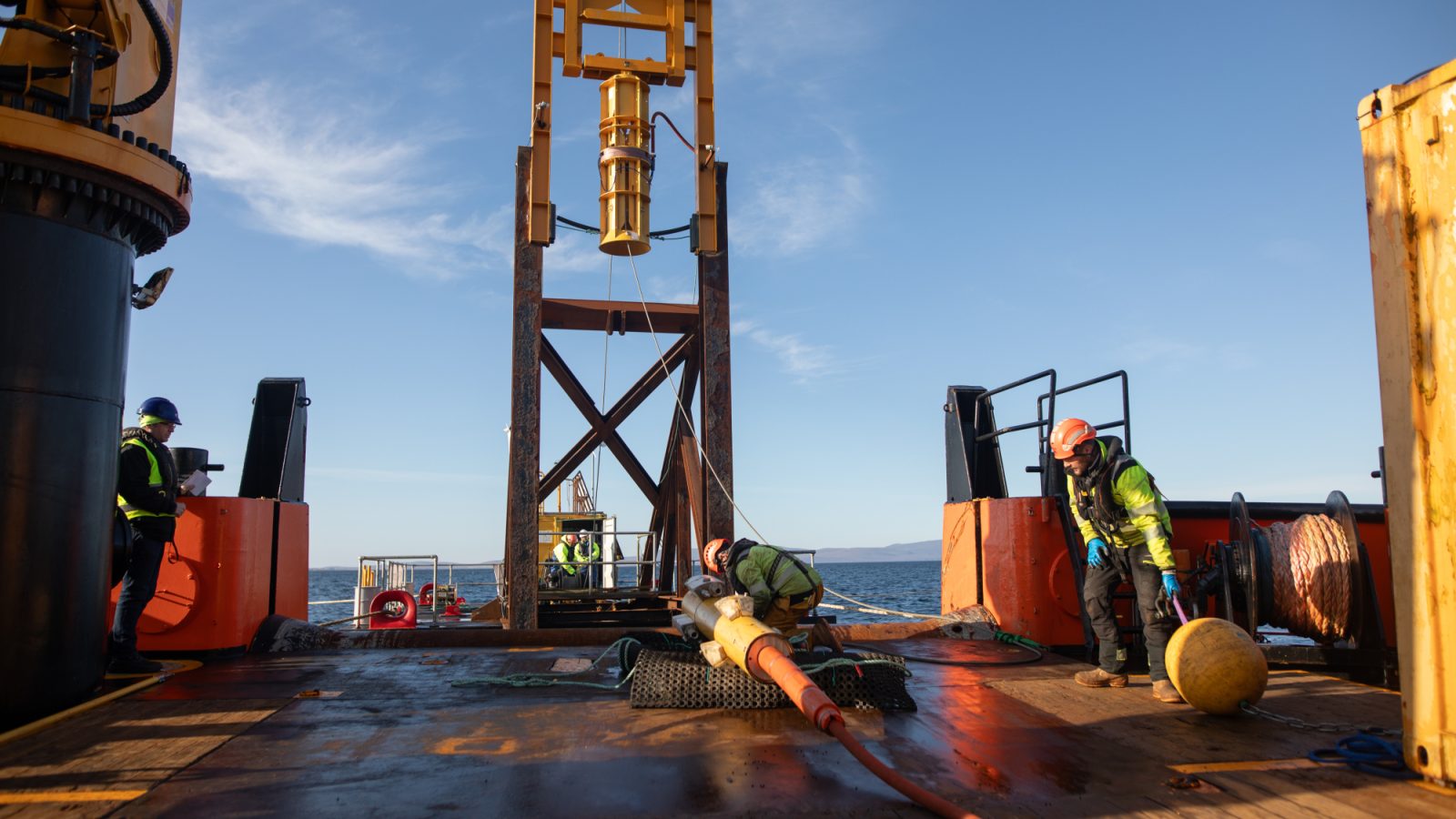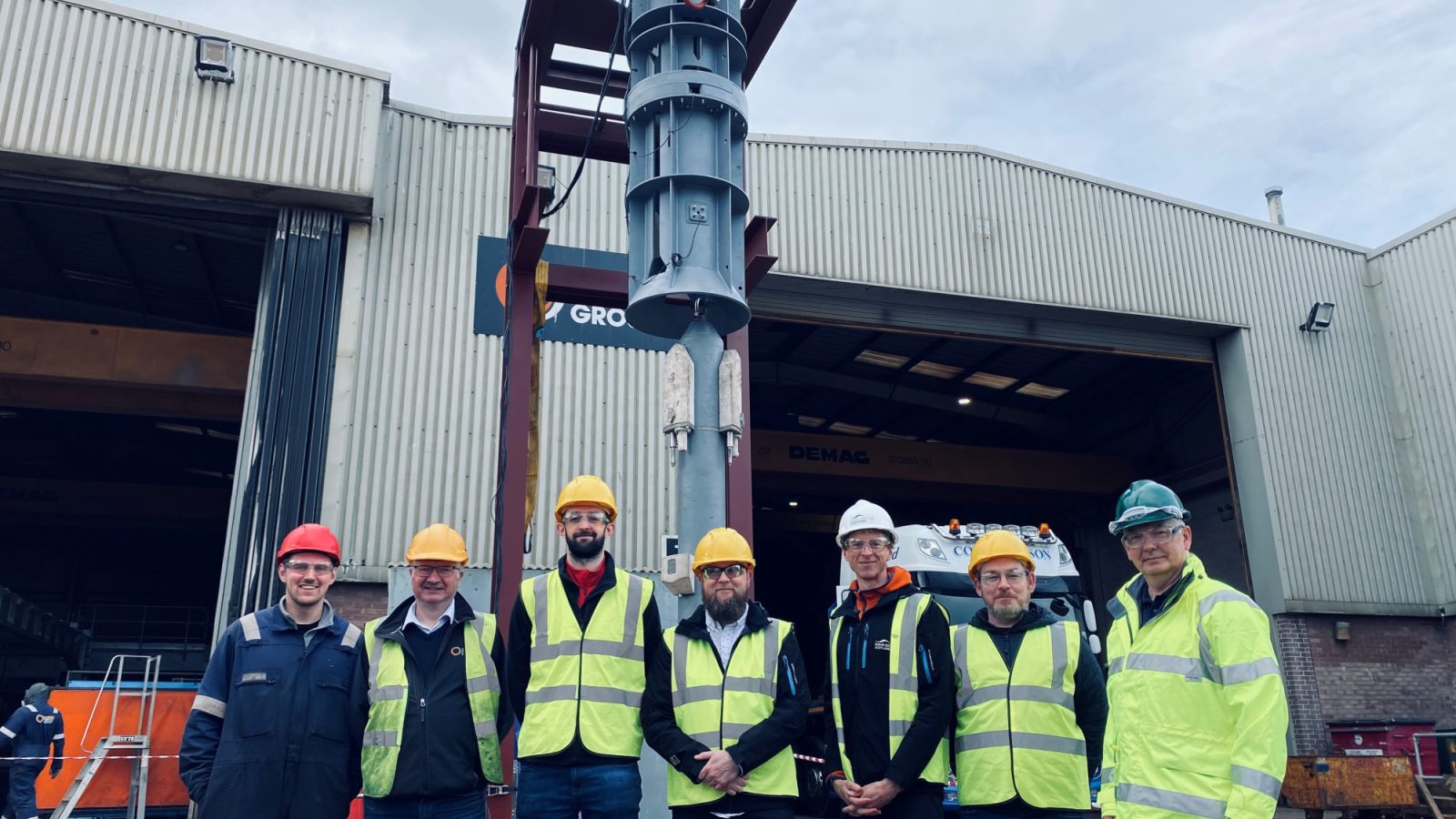Leading energy advisory and engineering consultancy, Apollo, has joined the €4 million FOREST (Future Ocean Renewable Energy System Technologies) project.
Funded by the European Commission under Horizon Europe, the project will see further trials of Apollo’s PALM Quick Connection System (QCS) – an innovative approach to connecting and disconnecting dynamic cables in ocean energy systems, improving their risk profile and maintainability.
Coordinated by the European Marine Energy Centre (EMEC) in Orkney, the three-year project brings together eight partners from across Europe to enhance the performance and resilience of next-generation tidal and wave energy systems through innovations in subsea components and digital technologies.
Apollo’s PALM QCS is a mechanical system that allows floating devices to be safely and quickly connected or disconnected from their subsea cables without the need for specialist vessels, personnel transfer or divers. Essentially a large plug-and-socket, it enables faster removal and redeployment of offshore devices, reducing maintenance downtime, marine spread costs and improving personnel safety.

The PALM QCS during offshore trials in Orkney 2024
STATS:
- From a study for floating offshore wind, reconnection is estimated to take 5.5 hours. The actual reported reconnection time in existing projects has been 10 days. This indicates the magnitude of the savings that can be achieved,
- The PALM QCS mechanical system completed in water trials during 2024, with more than 20 successful disconnect and reconnect operations completed.
Once installed, operation of the PALM QCS requires only the tow tug, i.e. no specialist cable handling equipment or walk to work vessels.
System being developed for HV operation
Having achieved Technology Readiness Level 6 (TRL 6) following successful open-water trials at EMEC in Orkney in 2024, Apollo will now use the FOREST project to prove the system for higher-voltage operation and validate its performance for commercial-scale ocean energy deployments. This next phase will further demonstrate the technology’s capability in real-world marine conditions, supporting future tidal and wave energy arrays.

The PALM QCS team following successful proof of concept onshore trials in 2022
Speaking about joining the FOREST project, Nigel Robinson, Marine Energies Director at Apollo, said: “I’m delighted we will be working with this talented consortium of organisations to deliver the FOREST objectives. By trialling higher voltage connect and disconnect operations, we will be building crucial reliability and bankability data, giving assurance that this is a key part of developers’ operating strategies. The FOREST project will allow us to take a significant stride towards commercialising the PALM QCS”
Matthew Finn, Managing Director, EMEC comments: “The FOREST project marks a major step forward for ocean energy, bringing together leading expertise from across Europe to tackle some of the sector’s most persistent challenges. By developing and testing next-generation subsea technologies here in Orkney, we’re advancing the reliability and efficiency of the ancillary systems crucial for ocean energy array deployments and helping to drive down costs. This collaboration demonstrates the power of innovation and partnership in accelerating the transition to clean, sustainable energy.”
The FOREST consortium includes: EMEC (Coordinator), Apollo (UK), Indeximate (UK), Intelligent Plant (UK), Bureau Veritas (UK), WavEC Offshore Renewables (Portugal), CENER – National Renewable Energy Centre (Spain), and SubConnected (Sweden).
The project directly supports the EU Strategy on Offshore Renewable Energy and the Strategic Energy Technology (SET) Plan, contributing to the EU’s 1 GW ocean energy target by developing technologies that improve system reliability and investor confidence.